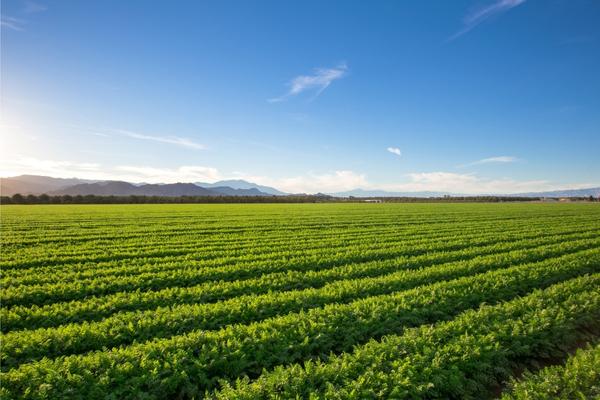U.S. farmers have the chance to actively take part in reducing the impacts of climate change through a variety of initiatives.
Those initiatives include:
- sequestering carbon in soils through the use of sustainable agricultural practices
- reducing or capturing methane emissions from livestock
- taking action to use nitrogen fertilizer more effectively to reduce nitrous oxide emissions
- reducing emissions by improving their on-farm energy efficiency
- contributing to the production of renewable energy
As part of his proposed American Jobs Plan, President Joe Biden expressly discussed paying farmers to grow cover crops to minimize net carbon dioxide emissions in his address to a joint session of Congress on April 28.
The Inflation Reduction Act, a comprehensive piece of legislation that was just signed into law, features significant climate change elements, such as huge subsidies for electric vehicles and sustainable energy.
However, lawmakers also included more than $25 billion to promote farming methods deemed to be climate-friendly, increase and protect forests, and expand their protection.
These include “cover crops,” plants grown merely to protect the soil, and no-till farming.
Researchers, environmental organizations, and the agricultural sector all agree that encouraging and educating farmers to implement these practices will enhance soil health and water and air quality.
“I think pretty much everyone across the board is pretty happy,” says Haley Leslie-Bole, a climate policy analyst with the World Resources Institute.
Exactly how much these practices will slow global warming and the effects of climate change is unclear.
American farmers have traditionally been compensated for preserving soil and lowering the potential for pollution to spill off their crops.
The new measure increases money for those programs, enabling more farmers to receive a per-acre payout for a variety of practices like no-till and cover crops that are anticipated to lower or sequester carbon emissions.
However, the interaction between plants, which provide organic material to the soil, and microbes and other small organisms, who break down everything they can and occasionally release greenhouse gases, will determine how such activities will alter the soil’s capacity to bind and store carbon.
It can take years for the effects of changes in crop varieties or farming methods to become apparent because those interactions vary greatly depending on the kind of soil and the surrounding environment.
Innovative techniques like rotational grazing and waste management that aid farmers in lowering emissions from livestock operations are also eligible for support under EQIP or CSP.
According to the 2017 Census of Agriculture, 686 farms reported using methane digesters to turn animal waste into electricity for use on the farm, which was a 28 percent increase from the 2012 Census.
Under the combined USDA/USDOE AgStar program, farmers can receive planning assistance for installing digester equipment, as well as grants or loans with guarantees under the USDA’s Rural Energy for America Program (REAP).
REAP also supports the installation of wind turbines or solar panels, both of which qualify for federal production tax credits.
No-till farming, which is gaining popularity, is another approach that is said to be climate-friendly.
Farmers stop the erosion of the topsoil by not plowing fields.
Additionally, they save money on diesel, which boosts their financial situation and lowers carbon dioxide emissions.
As carbon builds up in the higher root zone, enhancing the soil and assisting in moisture retention may rise crop yields.
Alexander Shunnarah Trial Attorneys
Our recent news blogs are meant to keep readers up to date on important information. We provide important general information to people accross the country, but our passion is helping accident victims get the compensation they deserve to help improve their lives after an accident. If you or a loved one was injured in an accident call us for a free consultation at 1-800-229-7989.
References:
https://thehill.com/opinion/energy-environment/567762-how-farmers-can-step-up-to-fight-climate-change/
https://www.science.org/content/article/can-farmers-fight-climate-change-new-u-s-law-gives-them-billions-try
